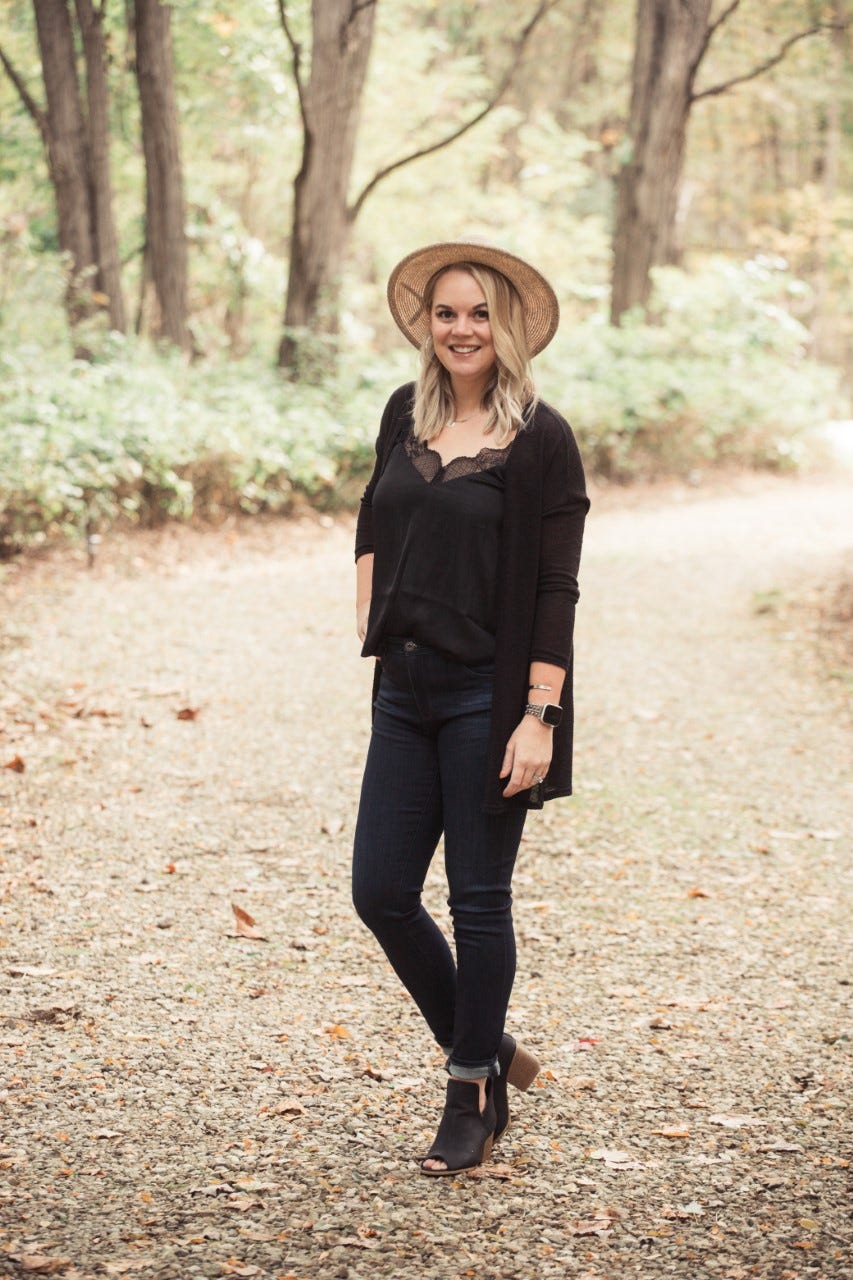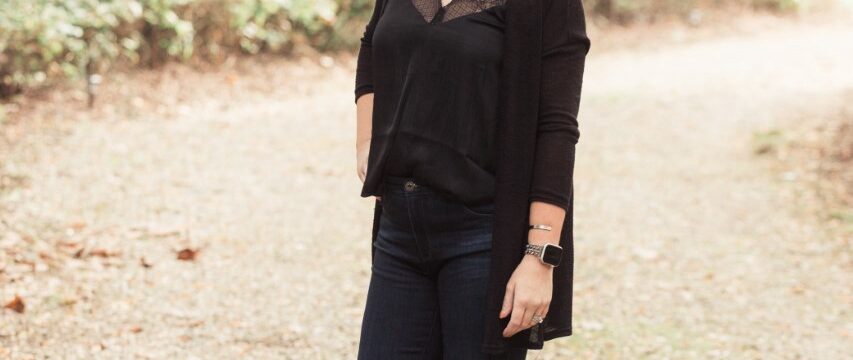Unstoppable: How Joshua D’Angelo has redefined success while navigating society with Bardet-Biedl Syndrome

Most kids who look “different” just want to be friends. Looking different doesn’t mean we want fewer friends. A smile and hello can go a long way if you see us out and about.
As a part of our “Unstoppable” series, I had the pleasure of interviewing Molly D’Angelo.
Molly D’Angelo is a wife and mom to three wonderful sons. Her youngest, Joshua, lives with a rare genetic condition called Bardet-Biedl syndrome. She is now his full-time caregiver and works tirelessly as his advocate. Her mission is to build awareness of the disease and use her family’s story to educate others so that they become more compassionate and understanding.
Thank you so much for doing this with us! It is really an honor. Our readers would love to get to know you a bit better. Can you share your “backstory” with us?
I had a rough pregnancy with Josh and knew right from the beginning that something might be wrong. We received a few abnormal test results early on in the pregnancy, but nothing was clearly diagnosed. My husband and I prepared ourselves for the unknown and knew that our baby might not be healthy.
From the moment he was born, he began growing in length and weight much quicker than the average baby. At four months old, he was 26 inches long and weighed almost 21 pounds. By 10 months old, he was 29 inches long and just over 34 pounds. At that point, I began keeping food logs and tracking how often he requested food so that I could show Josh’s doctors that something was wrong. Once they saw the logs, they started recognizing that Josh was overeating. In addition, he was found to have autism, global developmental delays, sleep apnea, liver and kidney problems, and other physical development issues.
We began seeing endocrinologists and a geneticist but did not receive a diagnosis until June 2021, when Josh was almost six years old. We now know that he has Bardet-Biedl syndrome (BBS), which is a rare genetic obesity disorder.
Do you feel comfortable sharing with us the story surrounding how Josh became ill? What mental shift did you make to not let that “stop you”?
As I said, I had anticipated that Josh might have health challenges before he was even born. I was prepared to become a caregiver and was determined to get him a diagnosis so that we could address it and get him the care he needs. He was diagnosed with autism at 18 months old and I immediately started working to make sure he could get into early intervention programs.
Not knowing what genetic disorder he was living with was challenging but I was very motivated to keep seeking answers. Finally getting the BBS diagnosis took a weight off my shoulders. My husband and I now knew for sure that his medical complications were not caused by anything we did “wrong” as parents, which was incredibly validating.
I’ve noticed in the BBS community and in the obesity disorder community in general, caregivers often give up because finding diagnoses and treatments becomes extremely frustrating. It’s important to keep in mind that as a caregiver, if you give up, you’re stopping your child’s ability to get help. I never wanted Josh to stop getting the care that he needs. That’s what keeps me going when things become difficult.
Can you tell our readers about the accomplishments he’s been able to make despite his illness?
Josh is only six years old, but he has already hit milestones that we were told he might never meet. He started physical therapy when he was ten months old. His first physical therapist told us that Josh might never walk. She helped us get a wheelchair for him. I was overjoyed at the time because getting him a wheelchair allowed us to take him to the zoo and participate in regular social activities. But when he was about 22 months old, he began to walk. He is now starting to conquer walking outdoors on different terrains and even climbing stairs. That’s something we never expected he would be able to do. Josh has done incredibly difficult things at his age because of the support of our family, his medical team, and his own perseverance.
What advice would you give to other people who have disabilities or limitations?
To parents of children with disabilities, I would encourage them to never give up. Don’t stop seeking services and make sure your child has a care team that you work well with. Don’t be afraid to speak up! As a caregiver, you are allowed to say something if you don’t feel that a situation is being handled correctly.
None of us are able to achieve success without some help along the way. Is there a particular person who you are grateful towards who helped get you to where you are?
I am so grateful to the Facebook community of other moms who have children with similar disorders to BBS. They have been so helpful in solving problems I never thought twice about when I became a parent. Josh grew out of his stroller too fast and couldn’t fit in a highchair when he was still a toddler. These moms helped me find solutions to those types of problems and made amazing recommendations. As a mom raising a child with a rare disease diagnosis, finding a group of other moms that understand what my family is going through has been invaluable.
How have you used your success to bring goodness to the world?
Before I became a parent, I never thought I could handle the challenges that come with raising a child with a rare disease. But I’m a very spiritual person and I think everything happens for a reason, even if we don’t understand it. Looking back, everything I had been through in life was preparing me for Josh. I’m grateful that my previous education and interests enabled me to become a successful caregiver.
I feel like it is my calling and responsibility to build awareness of BBS and other genetic obesity disorders because I want the world to become a kinder place to Josh and others like him. I hope that sharing our story makes people stop and think before they judge or make a hurtful comment towards someone that looks different from them in the future.
Can you share “5 things I wish people understood or knew about people with physical limitations” and why.
1. Not all obesity is the same. There are many living with rare genetic obesity without even knowing it.
2. Not speaking doesn’t mean not understanding. Joshua understands much more than even we, his caregivers, give him credit for most times. He shows his knowledge through his actions and things later said at random. Speaking to everyone the way you want to be spoken to is a great basic guideline.
3. Health restrictions aren’t always the ones you can see. With BBS, serious health conditions can develop over time (like retinal dysfunction, kidney failure, etc). These are serious conditions that require lifestyle choices every day to help long term.
4. Physical restrictions mean that simple things can be challenging–getting in and out of the car, going to the zoo, or finding shoes that fit are just some of the “normal” daily activities that require planning and problem-solving for our family.
5. Most kids who look “different” just want to be friends. Looking different doesn’t mean we want fewer friends. A smile and hello can go a long way if you see us out and about.
Can you please give us your favorite “Life Lesson Quote”?
Joshua 1:9 “Have I not commanded you? Be strong and courageous. Do not be afraid, do not be discouraged for the Lord your God is with you everywhere you go.”
I came across this verse when things were particularly challenging for our family and it fit our situation perfectly. It’s about doing the hard things.
We are very blessed that some of the biggest names in Business, VC funding, Sports, and Entertainment read this column. Is there a person in the world, or in the US whom you would love to have a private breakfast or lunch with, and why? He or she might just see this 🙂
Morgan Freeman.
Unstoppable: How Joshua D’Angelo has redefined success while navigating society with Bardet-Biedl… was originally published in Authority Magazine on Medium, where people are continuing the conversation by highlighting and responding to this story.
